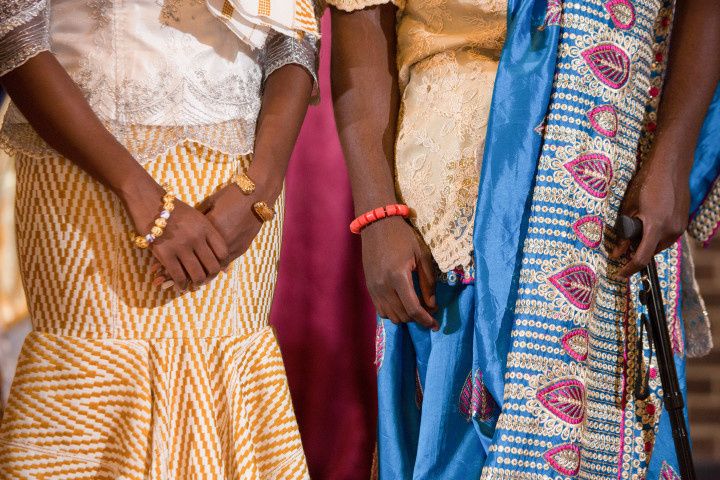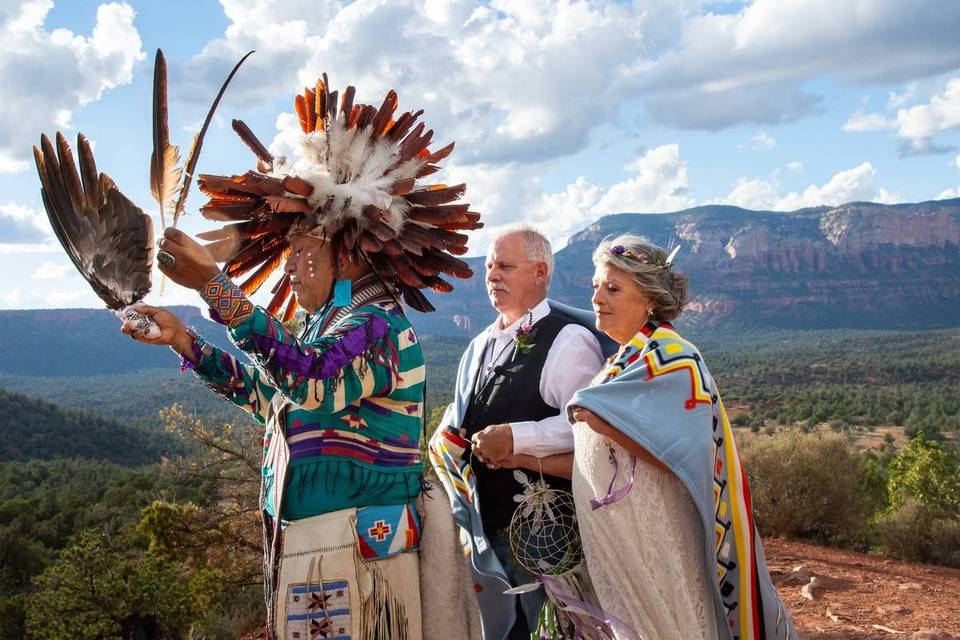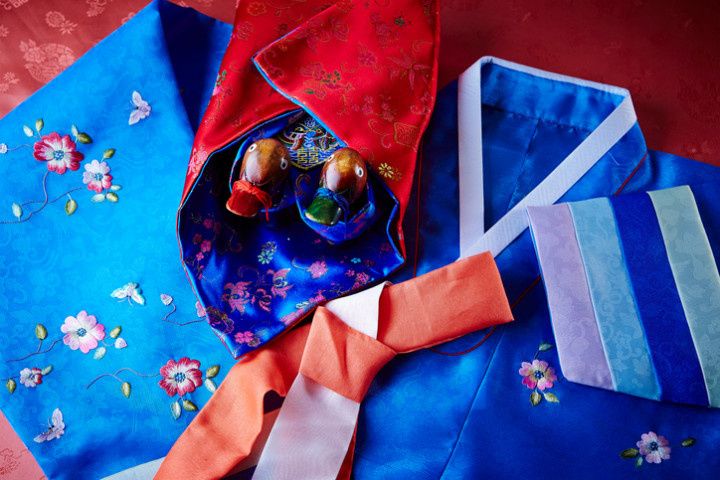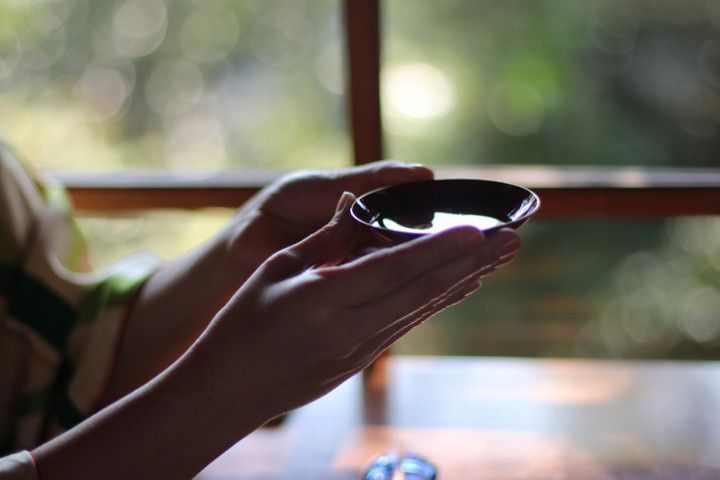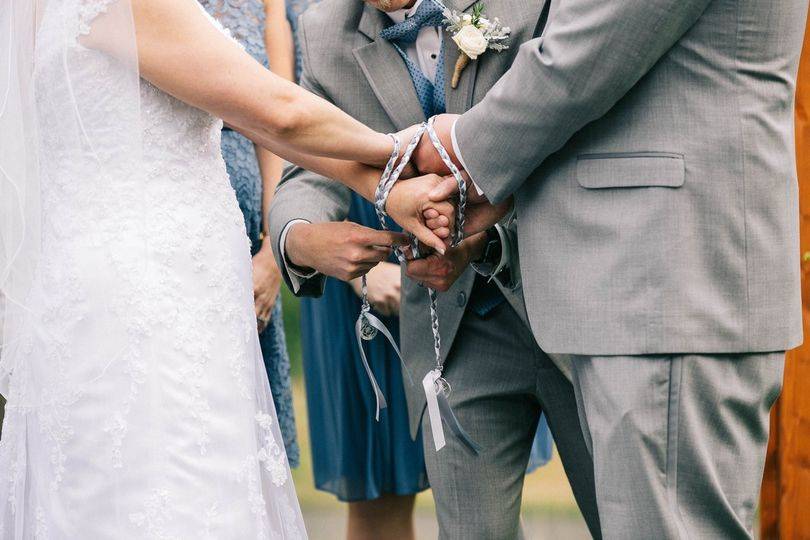African Wedding Customs to Know As a First-Time Guest
Learn what to expect before attending your first African wedding. Just remember that customs vary a lot throughout the various religions and ethnic groups of the continent.
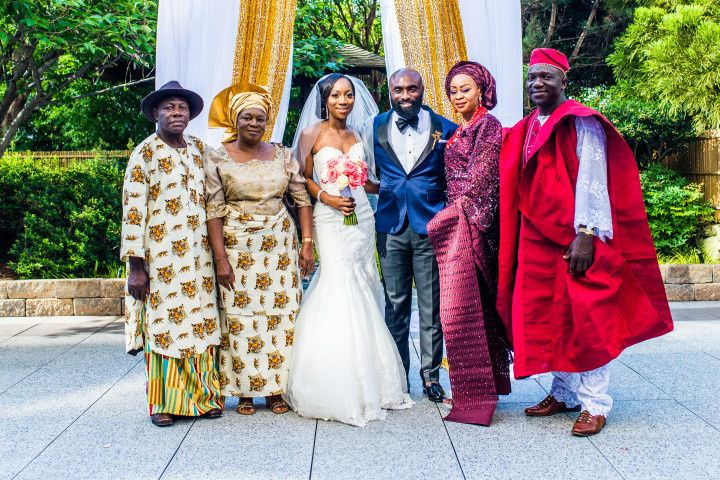
Africa is a large and diverse continent, and African wedding customs vary a lot depending on the region, nation, religion and ethnic group of the couple. The United States is home to a dynamic African diaspora from many different countries, so it’s not surprising you’ve been invited to an African wedding. Fret not! While the basic mechanics of the ceremony (readings, vows and symbolic rituals) will likely be familiar, there will be some cultural differences you will definitely want to know.
These are some of the most popular African wedding customs you might see as a guest.
North African wedding customs
This majority Muslim region of Africa includes Morocco, Libya, Egypt, Algeria and Tunisia.
It’s traditional for brides from this region to perform a ritual bath, called a Hamam, to purify themselves before marriage. Next, the bride and her closest will gather for a henna party, where their hands and feet will be decorated with traditional dye for good luck. If you’re part of the African wedding’s bridal party or a close friend of the bride, you might also be invited to this the night before the wedding.
North African weddings are almost always Muslim, so the rituals and customs will be derived from Islam. It’s important to dress conservatively in the Mosque for the ceremony (no bare arms or legs for both genders), and for women to bring a scarf to cover their heads. You will also be asked to remove your shoes before entering the ceremony location. A Muslim wedding will feature a short ceremony called a Nikah, which is totally segregated by gender. The wedding reception might be fully separated as well, with different rooms for men and women, or partially separate with a partition down the middle or men and women at different tables.
West African wedding customs
Nigeria, Ghana, Sierra Leone, Cameroon and Senegal are among the nations in West Africa.
Nigerian Americans are a sizable population in the United States, so the odds of you being invited to a Nigerian wedding are high. Depending on the tribe, customs will vary.
Yoruba traditional weddings feature a ritual called Tasting of the Elements, which represents the balance of emotions in a relationship. Food or drinks that are sour, hot, sweet and bitter are presented to the couple by the officiant and eaten to show they’re prepared to go through life’s good and bad together.
The Igbo are another Nigerian tribe with unique wedding rituals. Sharing of the Kola Nut is native to this tribe and may be performed at a traditional ceremony. The couple symbolically shares this small nut during the ceremony, then keeps the rest of it in their home to remind them of their commitment to one another.
Aso ebi is a tradition that spans much of West Africa and involves a ceremonial cloth that not only the bridesmaids, but also close friends, sisters and cousins of the bride will all wear for the wedding. The bride’s mother and the groom’s mother may also choose to pick out their own cloth for their close family and associates to wear as well. The aso ebi is a way of showing your closeness to the family during ceremonial events.
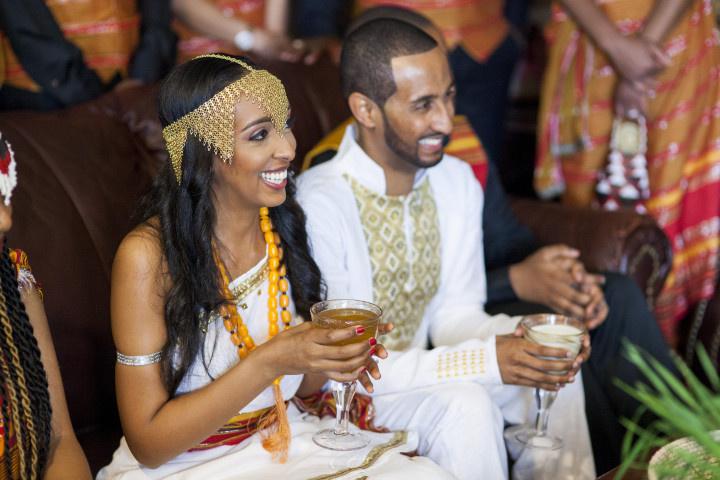
East African wedding customs
Ethiopia, Eritrea, Kenya and Tanzania are among the large nations in East Africa.
Swahili people are native to Kenya, Tanzania and parts of Central Africa as well. Many from this part of the continent practice Islam, and their wedding customs mirror those of other Islamic cultures. Similar to North Africans and Indians, Swahili weddings feature a pre-wedding henna party for the bride, bridesmaids and the other women closest to her. Swahili grooms and their friends gather for a night of fight-dancing before the wedding called Kirumbizi.
Amhara people are native to parts of Ethiopia and their traditional weddings feature garments made from Habesha cloth. Brides wear elegant white gowns made from this fabric with trimmings in gold or red, and accents in deep greens, bright blues or rich black. The groom’s attire can be a Western suit or a long coat with pants in the same cloth.
Ethiopian Orthodox is one of the most popular religions of the region, and many Ethiopian American couples will host their weddings in this fashion. With similar teachings as Greek Orthodox and Catholic religions, these weddings always take place in a church and feature Holy Trinity symbolism.
Central and South African wedding customs
South Africa, Botswana, Namibia, Angola and the Congo are included in this region.
Zulus are a large and important ethnic group that span this region. The traditional Zulu wedding ceremony is called Umabo, although couples from these countries also normally have a “white wedding,” or a Westernized ceremony, on a different day. You may be invited to both ceremonies.
Traditionally, an Umabo took place at the groom’s parents home, but modern couples might adapt this. Zulu brides where a cow skin skirt that is reserved for married women and a special headdress, called Isicholo, that is a also a sign of being married. The ceremony begins with the groom’s father welcoming his new daughter-in-law, then the bride’s father giving away his daughter to her new family. The family and guests usually sit on grass mats as the brides sisters and bridesmaids bring gifts from her to her in-laws.

